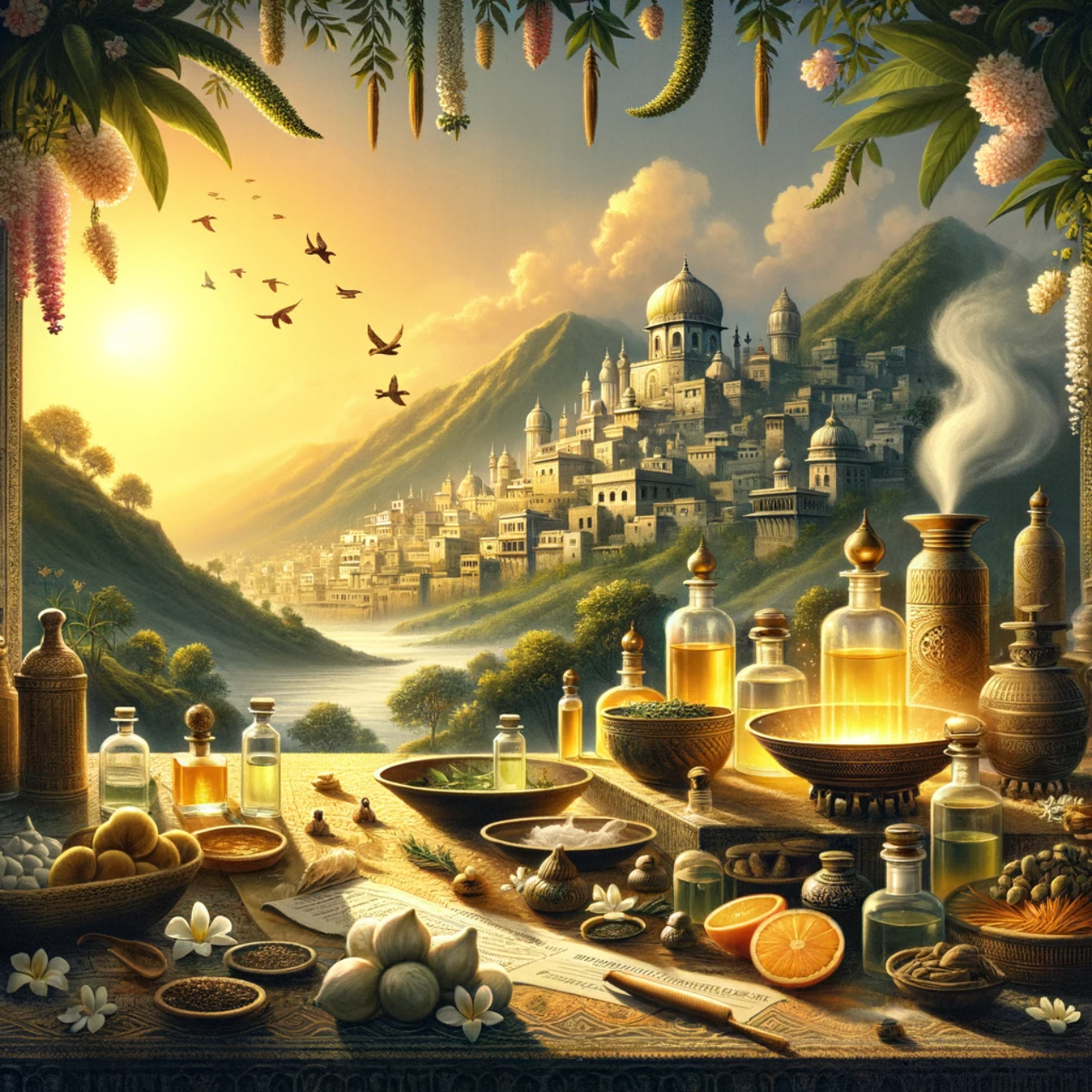Nestled in the heart of Uttar Pradesh, Kannauj stands as a beacon of perfumery, renowned for its exquisite ittars that capture the essence of India’s aromatic traditions. This town, steeped in history, crafts scents that resonate with the richness of Indian heritage, offering a sensory journey into the world of traditional fragrances.

Essence of Perfume
Perfume, a blend of aromatic essential oils, aroma compounds, and solvents, is used to provide a pleasant scent to the human body, objects, and living spaces. The art of making perfumes has been practiced since ancient times, evolving through centuries into a sophisticated industry combining tradition with modern science.
Global and National Market Insights
The global perfume industry is a multi-billion-dollar market, characterized by luxury, elegance, and an ever-growing demand for unique fragrances. Internationally, France, Italy, and the United States are prominent players, known for their innovative and iconic perfume brands. In India, the fragrance market is flourishing, with a blend of traditional ittars and modern perfumes catering to diverse preferences, symbolizing luxury, tradition, and personal expression.
“Smell is a word, perfume is literature.”
– Jean-Claude Ellena
Lesser-Known Facts
- Kannauj ittars are eco-friendly, made without the use of synthetic chemicals, making them a preferred choice for those seeking natural and sustainable fragrance options.
- The town’s unique geographical location contributes to the optimal growth of fragrance-yielding flowers, which are pivotal in ittar-making.
- Kannauj’s ittars have found their way into the international markets, with increasing demand in countries seeking authentic and traditional fragrances.
World-Renowned Perfume Capitals
Globally, cities like Grasse in France, known as the world’s perfume capital, along with regions in Italy and the Middle East, are celebrated for their contributions to the perfume industry. These places are esteemed for their long-standing traditions, expertise in fragrance creation, and the cultivation of perfume ingredients.

The Uniqueness of Kannauj Perfumes
Historical Legacy
Kannauj’s association with perfume dates back over a millennium, with its ittars enjoying patronage since the time of the Mughals. The traditional distillation techniques and familial secrets passed down through generations make these perfumes historically rich and culturally significant.
Standout Features
What makes Kannauj perfumes extraordinary is their method of production. The “deg and bhapka” system, a traditional distillation technique, is used to extract the scents from flowers, herbs, and spices into a base of sandalwood oil, ensuring a pure, alcohol-free essence. This meticulous process captures the soul of the raw materials, offering a fragrance that is both nuanced and deeply aromatic.
Artisanal Craftsmanship
The perfumers of Kannauj, known as ittarwallas, are artisans who have honed their craft over centuries. Their expertise in understanding the subtleties of scent and their methodical approach to distillation are what set Kannauj perfumes apart from their global counterparts.
Exceptional Production Techniques
Kannauj is synonymous with the traditional ‘deg and bhapka’ technique, a meticulous distillation process that infuses the essence of natural ingredients into pure, alcohol-free perfumes, encapsulating the fragrance’s true spirit.
Mastery in Perfumery
The ittar craftsmen of Kannauj, with their deep understanding of aromatic subtleties and commitment to age-old methodologies, produce fragrances that set a benchmark for purity and tradition in the perfume industry.
Conclusion: A Fragrant Heritage
Kannauj’s perfumes stand as a testament to India’s rich olfactory history, offering the world a scent that is steeped in tradition, luxury, and artistry. They are not just fragrances but a celebration of an age-old craft, preserving the essence of nature and the legacy of the masters of scent. As the interest in natural and artisanal products grows globally, Kannauj’s Ittar’s are poised to captivate the senses of a wider audience, inviting them to experience the soul of India’s aromatic heritage.

